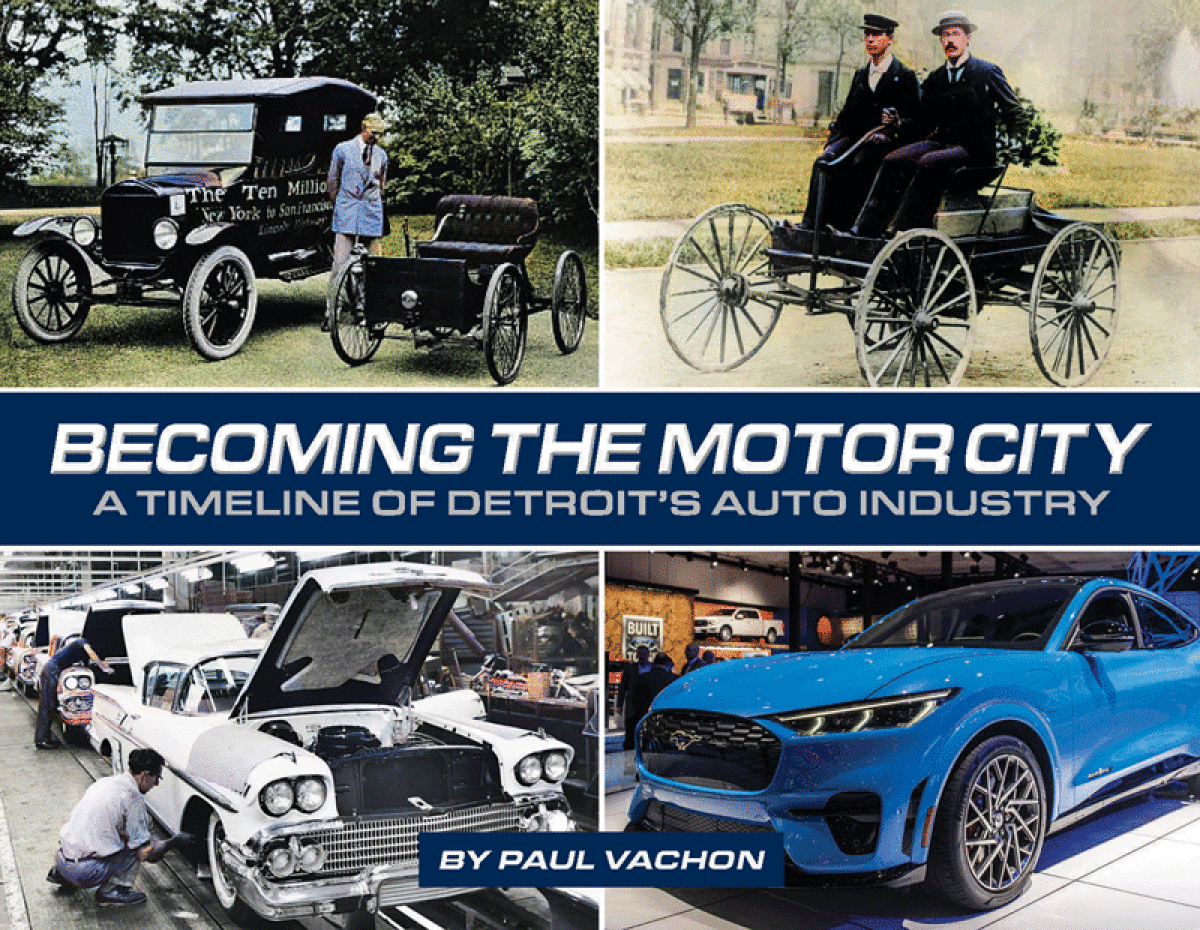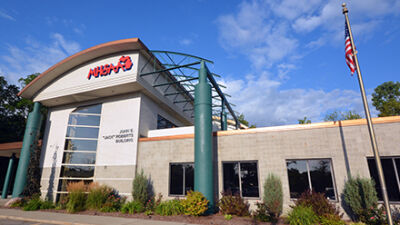
Paul Vachon is the author of the nonfiction book “Becoming the Motor City: A Timeline of Detroit’s Auto Industry.”
Photo provided by Paul Vachon
METRO DETROIT — Though people the world over know Detroit as the “Motor City,” few know the full story of the industry that put southeast Michigan on the map.
Author and freelance writer Paul Vachon is one such informed person, and he will give a talk about the industry as chronicled in his book “Becoming the Motor City: A Timeline of Detroit’s Auto Industry” at the Mount Clemens Public Library on Wednesday, March 29.
Based in Oak Park and a former resident of Royal Oak and Bloomfield Hills, Vachon has always been surrounded by the automotive industry. His parents worked for automotive suppliers, but his first foray into archiving regional automotive history began with a work about the St. Louis auto industry from his publisher.
“That book did cover some things I wasn’t aware of in the St. Louis area — some manufacturers and other things — but obviously Detroit is the center of (the auto industry) and they wanted a book that would celebrate that,” Vachon said.
With his experience writing timeline-oriented books about Detroit, Vachon embraced the assignment and set out searching university, public and online archives to begin finding the industry’s story from the primary and secondary sources it left behind.
Though Vachon is no stranger to the rigors of nonfiction research, the lockdowns and capacity restrictions of the COVID-19 pandemic forced him to take a more tactical approach to document hunting.
“It was perhaps a little more challenging than it normally would be,” Vachon said. “A lot of research institutions, archives and things like that were closed and therefore unavailable. They did have some resources that were available online which I utilized. I also was able to access a lot of materials through public libraries. It took a lot of sifting and so forth to get to what I was looking for in the venue of a public library.”
The search for sources took Vachon around the region, and the book’s timespan is just as widespread. Some of the most difficult research involved modern industry practices and technologies.
“One thing that you don’t hear a lot about but what I did put in the back — and it kind of represents the gold standard of alternate fuels if it comes to pass — are hydrogen fuel cells,” Vachon said. “I wanted to get a layperson’s appreciation for how they work, and I was really sifting through stuff and trying to understand to the effect that I could write about it intelligently, but I’m not an engineer so it was a pretty massive challenge.”
While the inclusion of hydrogen fuel cells closes the book on a future-looking perspective, the most interesting part of the book to Vachon involves intertwined corporate and family history of the Ford Motor Company.
“Out of the three major automakers in the Metro Detroit area, from a historical standpoint, I’ve always found Ford the most fascinating,” Vachon said.
The Ford family and company exemplifies the multifaceted and heavily influential nature of the industry, from Henry Ford’s use of assembly line production and interchangeable parts to the way he spread far-right views though publications and car sales, as well as Edsel Ford’s support of the arts in the city. This view of the automotive industry — one that has played an active role in shaping Detroit and the surrounding area, rather than simply building cars against the history unfolding around it — is the key idea Vachon hopes readers take from the book.
“I wanted to show how the industry impacted southeast Michigan,” Vachon said. “I would hope that the reader would come away from it seeing that the auto industry did not really develop in isolation of each other but rather they were intimately linked.”
Vachon will be at the Mount Clemens Public Library on Wednesday, March 29, to give a presentation on the book “Becoming the Motor City: A Timeline of Detroit’s Auto Industry” from 7 p.m. to 8 p.m. Copies of the book will be available for purchase and signing at the free talk. The book is also available at Barnes and Noble and Amazon, on Vachon’s website at paulvachonwrites.com, and through publisher Reedy Press at reedypress.com.
 Publication select ▼
Publication select ▼




























